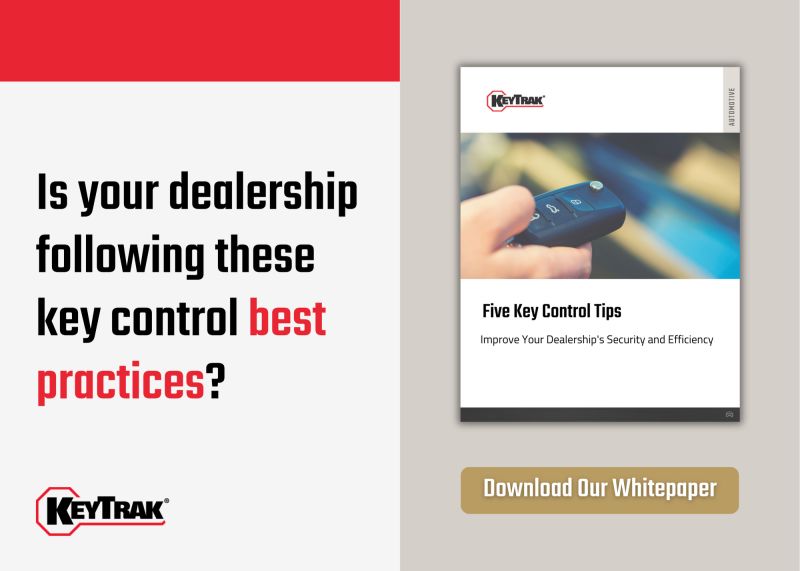We’ve all experienced the humorous yet infuriating moment of discovering a lost pair of sunglasses perched atop your head or realizing the cell phone you were desperately searching for was in your pocket all along.
These spurts of forgetfulness are little more than nuisances on their own. Still, for a car dealership serving several shoppers simultaneously, they can be the difference between a lifelong customer and a damaging online review.
Consumers have grown accustomed to convenience and immediacy across almost every industry, and automotive retail is no exception. Every moment a vehicle shopper has to wait while a salesperson scrounges around for a set of keys they swore they left on the pegboard widens the rift between your business and that customer.
The truth is, your employees don’t deserve all the blame.
The Psychology of Forgetfulness
Human beings are, by nature, extremely forgetful in the short term. Americans misplace an average of nine items every day, with keys near the top of the list. Our brains store short-term memory for less than a minute, then discard it to make room for more critical information.
You may point out that as staff at an automotive dealership, it’s your employees’ responsibility to take better care of their keys than the average Joe, and you’d be right. However, it’s important to realize that two of the biggest reasons we misplace items are stress and fatigue.
As your associates take on more stressors — attending to customers, responding to requests from management, and overseeing reams of paperwork — their likelihood of making an innocent mistake drastically increases. Multitasking breeds forgetfulness, but unfortunately, multitasking is what’s demanded of your employees as they try to meet ever-evolving customer expectations.
Compound this issue across multiple dealership departments and locations, and the case becomes clear for a strong key control system that takes the burden of always remembering and tracking where keys are off your employees.
The Ugly Cost of Forgetfulness
Misplacing keys and other assets can be costly in ways both obvious and subtle. Those employees lucky enough to hunt down missing keys spend an average of 10 minutes doing so — precious time that could be devoted to showing potential buyers around your lot or servicing a vehicle.
In the event the keys never resurface, you can expect to pay an average of $84-$200 for a replacement keys or fob on top of the wasted time.
But there’s also a hidden cost that doesn’t show up on any financial ledgers. Think about what stress and fatigue do to our memory. Even after replacing or recovering keys, how will your employees feel constantly having to chase down valuable assets while customers simply want to get in and out of the dealership quickly? If you don’t take steps to fix the underlying problem of poor key control, your employees will remain stuck in a vicious cycle of stress and lost revenue opportunities.
Until we find a way to re-engineer our psychology, the best method to break that vicious cycle and shift the focus back to your customers is to invest in a key management system that accounts for human error and helps your business overcome forgetfulness.
Chase the Sale, Not the Keys
Easy transactions and quality service are pivotal reasons why consumers willingly pay more for certain products. Time wasted scouring entire buildings for keys, not only keeps customers waiting but it prevents associates from forming positive relationships with their clients.
What happens when one of your employees forgets to return a key, and the log hasn’t been updated? In the past, this would lead to confusion, frustration, and time wasted. Today, an electronic key control system can automatically store data on who has a key and when they took it, even sending alerts for overdue keys so they don’t go missing for extended periods of time. Now, a simple mistake no longer has dire consequences.
Or perhaps your employees forget where spare vehicle keys are located, an issue that wouldn’t exist if all keys were stored in a single system. Having a system with the built-in ability to enforce certain aspects of your key control policy (e.g., restricting who can access which keys, setting time limits on how long a key can be out, and notifying managers of any keys still checked out at the end of the day), ensures employees forgetting policies won’t cost you down the road.
If you want a machine that maintains an easily accessible record of everything it processes, securely locks down items, and keeps tabs on whoever is using each asset, look to your key management system. With the right system in place, losing track of a key no longer means losing sight of your customers.



